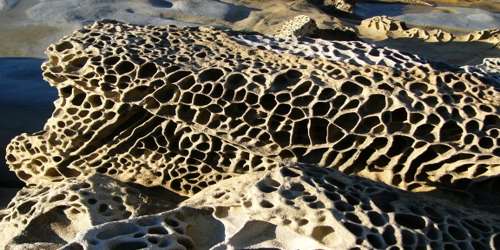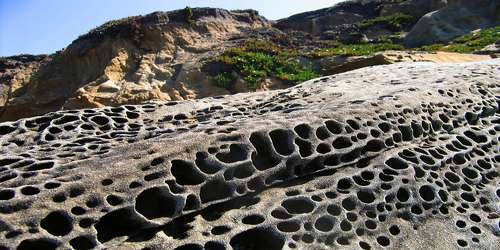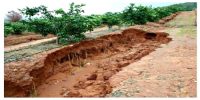Salt weathering is a form of mechanical or physical weathering of rock. Salts in rocks expand due to thermal action, hydration, and crystallization. Many salts like calcium, sodium, magnesium, potassium, and barium have a tendency to expand. Expansion of these salts depends on temperature and their thermal properties. High-temperature ranges between 30 and 50°C of surface temperatures in deserts favor such salt expansion. Salt crystals in near-surface pores cause splitting of individual grains within rocks, which eventually fall off. This process of falling off of individual grains may result in granular disintegration or granular foliation. Salt weathering occurs when a saline solution gets into cracks or pores in the rock. If the temperature changes enough for the ice to crystallize, it will expand in the crack and may fracture the rock.

Salt crystallization is most effective of all salt-weathering processes. In areas, with alternating wetting and drying conditions, salt crystal growth is favored and the neighboring grains are pushed aside. Sodium chloride and gypsum crystals in desert areas heave up overlying layers of materials and with the result, polygonal cracks develop all over the heaved surface. With salt crystal growth, chalk breaks down most readily, followed by limestone, sandstone, shale, gneiss, and granite etc.














